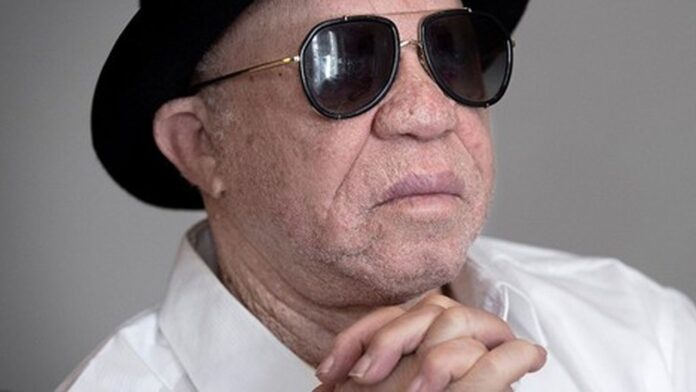Under the lights of Rabat’s OLM Souissi stage, Friday night became an electrifying celebration of global electronic music, blending continents and styles in a single unforgettable evening. For the penultimate night of the Mawazine Festival, two major forces in the genre—Moblack and Lost Frequencies—delivered back-to-back performances that transported the crowd on a sonic journey from the depths of African rhythms to the shimmer of international pop.
Kicking off the night, Moblack, the Italian producer known for championing organic afro-house, wasted no time in setting an atmospheric tone. His set unfolded like a slow-burning ritual, weaving together deep electronic textures, tribal percussion, and delicately sampled African vocals. The beats ebbed and surged with hypnotic bass lines, drawing the audience into a near-trance, suspended somewhere between meditative stillness and collective euphoria.
One of the most poignant moments came when the beat suddenly fell away, giving space to a stripped-down electronic rendition of “Sawt Al Hassan.” Moblack, holding a Moroccan flag aloft, turned to face the crowd as applause erupted in waves. It was a simple but powerful tribute to the host country, delivered with quiet sincerity and deep respect.
Just moments later, the night reached another high point as Salif Keita stepped into the spotlight. The legendary Malian musician, accompanied only by an acoustic guitar, began singing “Yamore” in a moment so still it felt sacred. His gravelly voice—raw, commanding, and unmistakable—blended effortlessly with Moblack’s ambient textures. It was more than a duet; it was a quiet celebration of the bridge between heritage and modernity, a rare meeting of soul and sound design.
Then came Lost Frequencies, bringing a shift in energy with his polished, feel-good electronic pop. The Belgian DJ, whose global hits have become festival anthems, took over the decks and launched into a seamless string of crowd-pleasers: “Are You With Me,” “Reality,” “Crazy.” His set was clean and luminous, engineered to keep the crowd moving with melodic builds and precision drops. Without overcomplicating things, he brought the kind of universal appeal that fills stadiums and fuels summer soundtracks.
Together, the two performances painted a vivid picture of today’s electronic music scene—where Afro-influences and pop sensibilities don’t just coexist but elevate each other. The festival’s programming was on point, curating a lineup that embraced both depth and accessibility. The result was a packed venue and an audience clearly moved by the variety and richness of the night’s soundscape.
As the 20th edition of Mawazine nears its finale, the OLM Souissi stage has once again proven itself as the festival’s beating heart. Saturday promises an explosive close, with anticipated sets from Lil Baby and El Grande Toto.
Meanwhile, on the Bouregreg stage that same Friday night, Salif Keita offered another spellbinding performance—this time entirely his own. Far from the whirlwind of high-volume festival sets, Keita delivered something more personal, more grounded. From the very first notes, his voice filled the space with a commanding warmth—low, wide, and instantly familiar. His set was steeped in the pulse of Mandinka rhythms and Afro-pop textures, laced with subtle nods to modernity but never straying from his core identity.
With tracks like “Tonton” and “Nous pas bouger,” he built more than a concert—he created a story, one shaped by decades of exploration and connection. There was no sense of a playlist being ticked off. Instead, Keita offered a living, breathing narrative, one that reflected not just his music but his journey.
The man on stage, his head clean-shaven and his presence magnetic, needed no theatrics. Every pause, every movement felt intentional. His arrangements were elegant and restrained, giving space for his voice and his message to resonate. This wasn’t just a mix of genres—it was a refined architecture of sound, shaped patiently over years of artistic evolution.
What unfolded was more than performance—it was communion. At times, the boundary between artist and audience vanished. You could feel a rare warmth settle in the air, the kind that only comes from honest dialogue between a cultural icon and a captivated crowd.
Often cited as a founding figure in Afropop, Salif Keita has recorded 20 albums and earned five Grammy nominations. His music knows no borders, blending popular appeal with rich, thoughtful artistry. His set at Mawazine stood as a reminder that some voices carry beyond trends—they endure, they connect, they matter.
With the festival under the High Patronage of King Mohammed VI, Mawazine continues to surprise by building bridges across musical worlds. Welcoming Salif Keita to the Bouregreg stage was more than a booking—it was a statement on the enduring power of sound, memory, and shared experience.





